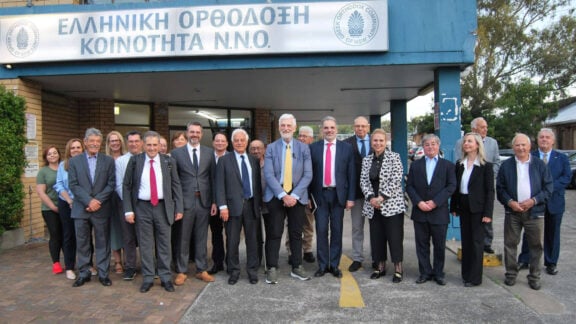Greek university entrance bases were announced on Tuesday, and – as every year – were accompanied by scenes of frenzy with Greek students rushing to see if they got into their course of choice.
This year was particularly positive as 159 courses noted a drop in entry exam levels. This means, that 2019 will be considered a good year, with more students who sat for exams managing to get into their first choice of school.
The students sat for Panhellenic exams in four subjects from a total of seventeen or so compulsory units of study offered in senior high school, and while the first glimpse into their future were posted on boards at the start of summer, they finally found out for certain if they managed to get into their desired university course of choice today.
As usual, the stakes were high this year. Pressure to succeed in the Panhellenic exams soars to nerve-wracking levels as the entire academic life of students is determined solely by their performance in these grueling exams. Competition is so tough that most students are forced to start extra tuition upon entering their senior freshman year and begin a rigorous course of study throughout the school vacation period. Extra tuition is necessary because school lessons aren’t enough to cut it.
Parents, teachers and students know that the Panhellenic System is flawed and sheer torture for students but it is regurgitated nonetheless as streamlining courses would result in lost tuition fees for teachers and more unemployment. There are 37,000 tutors registered with private tutoring companies. In some cases, students are taught at institutes by the same teacher they have at school, creating perverse incentives. And though Greece’s seemingly free education system is based on the principle of equality according to Article 16 of the Constitution, the overstuffed curriculum and low quality of some public schools in Greece has led to a parallel education system being set up. A student who does not attend frontistirio (private tuition) is a “dead man” for the exams. Unfortunately, this extra tuition averages 500 euros per month, nearly as much as the average Greek salary in the post-bailout era. For this reason, poorer families to struggle to pay for extra tuition.
READ MORE: Greece looks to scrap Greek tragedy lessons for gender studies
With so much money invested in their children’s education, it is no surprise that Greek parents are overbearing. Having paid a small fortune, they tend to view their child’s success as their own, detracting from students’ sense of personal achievement. Failure is not just the child’s personal failure but comes at a financial cost, increasing a young person’s anxiety levels.
The pressure is bad enough to pass the four subjects require to enter university, however is made even worse as a result of the way in which the exams are structured. Separated into thematic strands, students sit for university entrance exams in specific subjects but are still required to attend lessons for subjects they won’t be sitting for. This means that half the class is always disinterested and disengaged in the lessons that don’t pertain to them which further increases the need for tuition.
The four Panhellenic subjects for university entrance are tested on a written basis on a national scale. They all play an equal role in the establishment of the general average. However, as regards to the leaving certificate (apolytirio), all subjects are tested on a school level. This means that students still have to sit for school exams in the same subjects they were tested for in the Panhellenic exam as well as other areas of studies that aren’t calculated as part of their university entrance requirements. Hence, it is possible for a student to do well in the Panhellenic exams but still repeat the class.
READ MORE: When Esperanto was the official language taught in Greek schools
The success of each candidate is determined from the combination of the marks on the test and whether these are good enough to ensure that they are admitted to a school high on their declaration of preferences.
The stakes are so high that all that matters in the final two years of high school are the marks for students to get into their first choice of schools. Their success in doing so depends on the number of places available in each department and determined by supply and demand during any particular year. They are groomed from the start of high school for this moment and are trained early on to study in a way that would help them succeed. And in Greece, days like today come something as a moment of reckoning.
But succeed or pass in the Panhellenic exams, one thing is certain. Rather than prepare them for success, high school students are merely misguided into thinking that Panhellenic Exams are the point of education and – of course – this could not be further from the truth.









